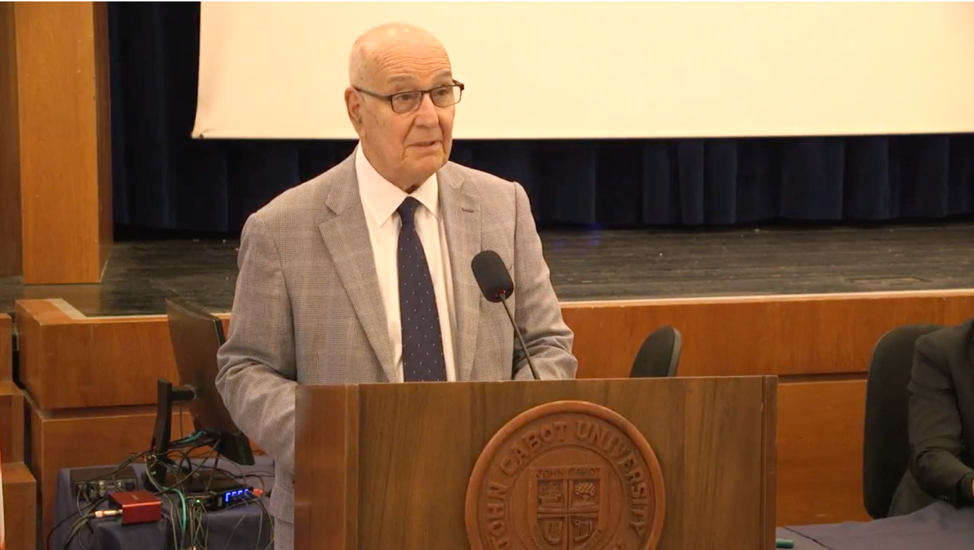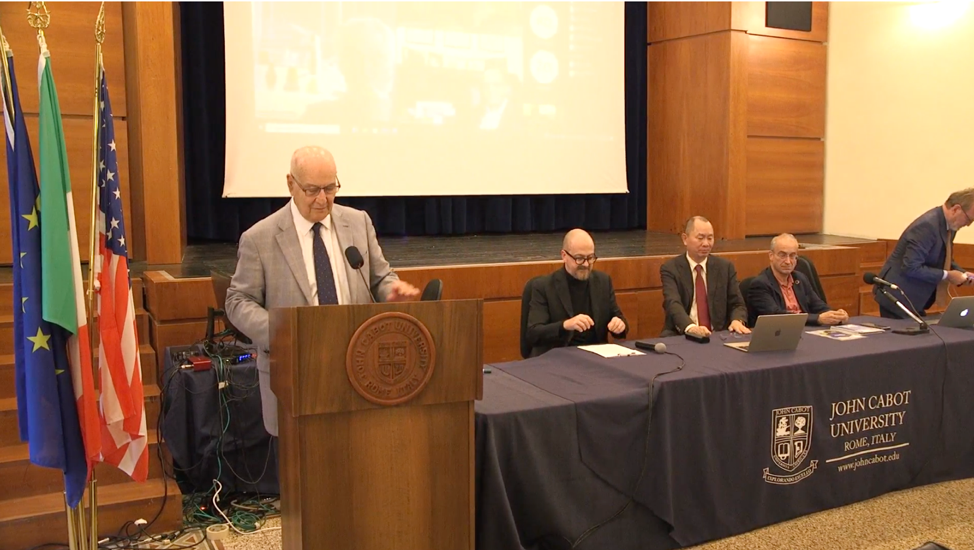Franco Pavoncello, President of John Cabot University
Rome, October 25, 2022
Governor Dukakis, Distinguished panelists, ladies and gentlemen, I am Franco Pavoncello President of John Cabot University, and it is with great pleasure and honor that I welcome you all to JCU, for this Symposium: on Technology for Peace and Democracy in the Age of Global Enlightenment.
Organized by our “Institute of Future and Innovation Studies” in partnership with the “Boston Global Forum” and the “United Nations Centennial Initiative”, with the support of UN Under-Secretary-General, Tech Envoy Amandeep Gill.
The symposium is an official event of the “Global Alliance for Digital Governance (GADG)” An initiative launched in 2021 by the Boston Global Forum and the World Leadership Alliance-Club de Madrid.
And it is part of the Yearly Festival of Diplomacy which takes place each fall in Rome.
This is an important inaugural symposium, which brings together Europe ,Asia and the United States, In fact governing the challenges and promises of technological progress has never been as pivotal for the future of mankind as it is today. A time in which we are faced with the dilemma of the relationship between technology and democracy. We do indeed live in an age of scientific singularity with unprecedented planetary opportunities and challenges, where everything is connected, and the very concepts of time and distance appear to have been eliminated, in a world pulsating in unison 24/7.
The revolution ushered in by the arrival of internet and planetary communication, the concentration of technological means in the hands of the few, accompanied by the consequent concentration of wealth, poses important challenges, and new calls for decentralization and localization are rising. This is compounded by the fact that technological transformations have not been accompanied by ideological renewal, and the world appears still significantly ruled by ideological schemes produced by centuries old problems, in which scarcity, hunger, diseases were the norm.
We do live in a world of great problems, but let us be sure, also of great promises. We cannot ignore the enormous material progress of mankind and the expanding awareness of what it means to be free and to live a decent life. a widely shared, growing realization that is increasingly making our global civil societies reject violent, dictatorial deprivations of freedom and of the very basis of human existence. Sadly we have examples of that right before our eyes today.
But our hope for this march towards greater enlightenment rests first and foremost on the extent to which our younger generations share this aspiration and commitment.
As educators we should ensure that commitment, not by instilling in the mind of our students ready-set recipes about the future based on ideas of the past. Instead We must provide them with the empathy and curiosity, the attention to the unfamiliar, and critical and agile minds capable of capturing evolving future trends and challenges. But most of all we must alert them to the promise that constantly evolving scientific and technological progress offers, in the not too distant future, to the solution of problems that today look insurmountable and at times stop humanity’s progress.
That is why holding this symposium at this University, which is celebrating this year 50 years of serving as a bridge between culture and nations, takes on a special meaning, and so allow me to thank you all again for being here today on this important occasion. Welcome all to John Cabot University.

